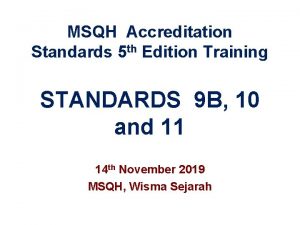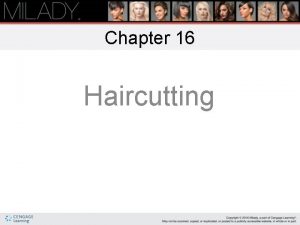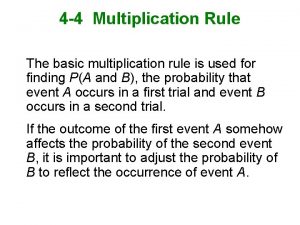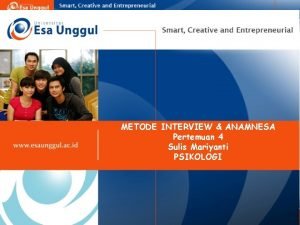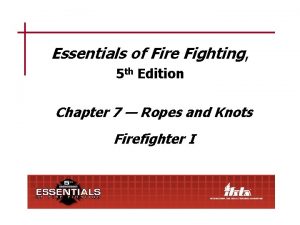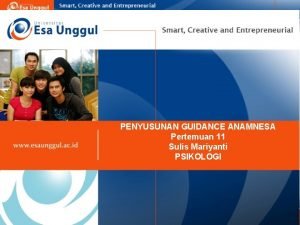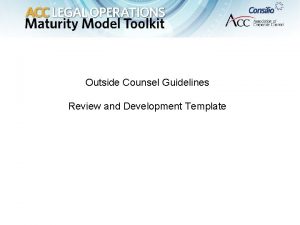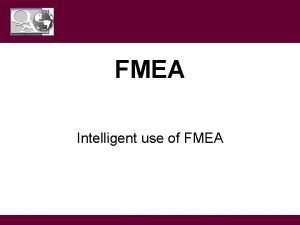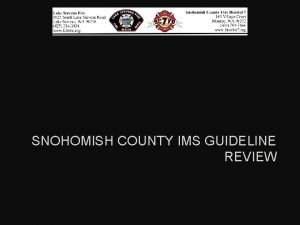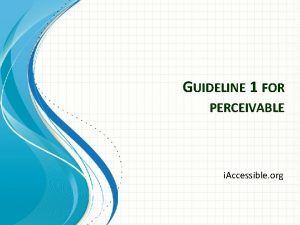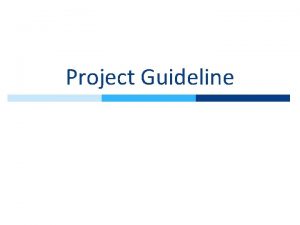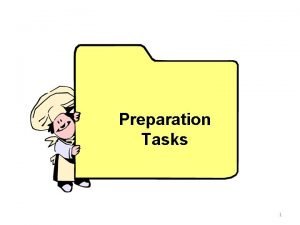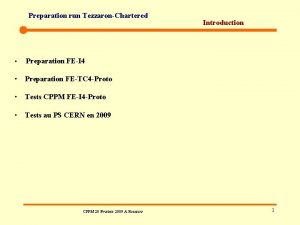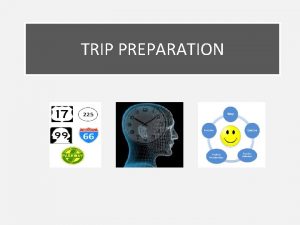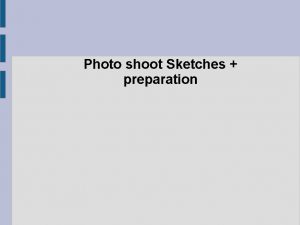MICROTEACHING Guideline for the Preparation of microteaching Microteaching

















- Slides: 17

MICROTEACHING Guideline for the Preparation of microteaching

Microteaching • A micro lesson is a 10 – 15 minutes lesson • It present a simple ‘snapshot’ of what or how you teach • Therefore, please provide a relatively quick, comfortable and effective means of teaching

Microteaching • Do not try and cram an entire body of knowledge into 15 minutes • You will present your lesson with your group members as students

Tips on Preparing of Microteaching 1) Select a topic to be taught • • • Introductory topic Simple and straightforward Focus on teaching skills and process rather than sophisticated content

Tips on Preparation of Microteaching 2) Think about your lesson objectives • Determine your objectives • How your teaching methodology might work to fulfill your objectives

Tips on Preparation of Microteaching 3) Think about ‘R’ in ASSURE model • How do you want to make sure that students will participate in your lesson • Think about the most effective teaching methodology for your students

Tips on Preparation of Microteaching 4) Think about the materials you will need for your lesson • Bring any prepared materials, charts, posters, maps, equipment etc.

GROUND RULES 1) Respect confidently concerning what we learn about each other 2) Respect agreed-upon time limits (10 -15 minutes) 3) Maintain collegiality – we are all in this together

GROUND RULES 4) Stay psychologically and physically present and on task 5) Respect other’s attempt to experiment and to take risks

Advice to Listeners • Support and accept the person making the presentation • Read the required material ahead of time so that you have a general idea of the subject for the presentation • Prepare to concentrate on what the presenter is saying

Advice to Listeners • Listen and take notes during the presentation • Based on these notes, you can ask and answer questions on the presentation • Enjoy and learn form the process!!!

TIPS FOR PRESENTATION 1) Capture • • Set induction – must be able to capture the audience’s attention, engage the, and perhaps surprise them E. g. begin with an unexpected fact, a quotation, a question for the class or a short story –either funny or tragic

2) Preview • Tell the class briefly what you are trying to do • Give them a preview of your main points-this will focus their attention and help them to follow the presentation

3) Preview • If the audience is unfamiliar with the topic, give them some background about it • If the ideas are difficult or complicated, use a handout or diagram

4) it’s good to… • Speaks clearly Pronounce correctly • Add emphasis Use familiar and short • • words • Look at the audience • Be sincere • • Pause occasionally Use appropriate gestures Stand confidently Breathe!

5) Try not to: !!! • Sway • Memorise • Bob, fidget • Read • Learn on the desk or • “um. . ah. . eh. . ” white board • Dawdle • Mumble or drone • Grunt, groan

Conclusion • Briefly summarise your main points • Prepare questions for the class to encourage discussion • Do not end with “Any questions? ? Or “Well I guess that’s it” and walk away • Tie all your points together neatly, answer the questions completely, smile – then walk away
 5 guideline for cumbersome calculations
5 guideline for cumbersome calculations Srm process flow
Srm process flow Msqh guideline
Msqh guideline Acg chronic pancreatitis
Acg chronic pancreatitis Uniform layer haircut
Uniform layer haircut Escardio guideline
Escardio guideline Anemia in pregnancy guideline
Anemia in pregnancy guideline Formal multiplication rule
Formal multiplication rule Guideline anamnesa
Guideline anamnesa Aki kdigo 2012
Aki kdigo 2012 Bpfk cosmetic guideline
Bpfk cosmetic guideline What is a guideline for hoisting a hoseline?
What is a guideline for hoisting a hoseline? Asean stability guideline
Asean stability guideline Autoanamnesa
Autoanamnesa Sample outside counsel billing guidelines
Sample outside counsel billing guidelines Who guideline on country pharmaceutical pricing policies
Who guideline on country pharmaceutical pricing policies East guideline
East guideline Fmea guideline
Fmea guideline


